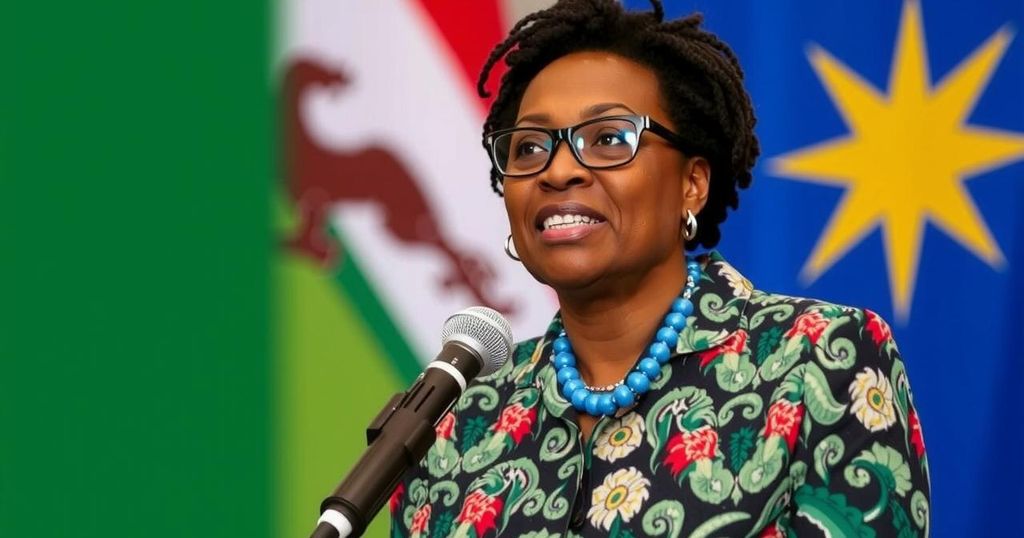Namibia’s Presidential Election: VP Nandi-Ndaitwah Leads Amid Controversies

Namibia’s presidential election, occurring on November 27, 2024, saw vice president Netumbo Nandi-Ndaitwah leading amid significant voting issues, including ballot shortages. The opposition has rejected the early results, claiming the extension of voting was illegal and intends to challenge the election’s validity. Nandi-Ndaitwah’s strong lead raises questions about the ruling party’s future and the country’s electoral integrity.
In the recent presidential election held in Namibia, the vice president, Netumbo Nandi-Ndaitwah, is leading in preliminary results amidst considerable electoral irregularities. The election, which took place on November 27, 2024, faced significant challenges, including a shortage of ballot papers, prompting an extension of voting for an additional three days. The opposition parties have disputed the election results and have declared their intention to pursue legal action to challenge the vote’s legitimacy.
Despite being a prominent candidate for historical significance as potentially Namibia’s first female leader, Nandi-Ndaitwah’s lead comes alongside claims of voting discrepancies. With about 56% of the early counted votes from approximately 1.4 million cast, she is followed by Panduleni Itula of the Independent Patriots for Change, who has garnered 27%. The ruling party, SWAPO, which has governed since Namibia’s independence in 1990, is witnessing rising discontent due to economic struggles and corruption allegations.
As the election outcomes unfold, opposition leaders are vocal about their concerns regarding electoral integrity, emphasizing the significance of nurturing democratic principles in the country. The Electoral Commission has affirmed that there will be no rerun, despite numerous calls for one. This situation arises against a backdrop of regional political shifts, where disillusionment with long-standing ruling parties has led to electoral upsets in neighboring nations.
The context of this election is pivotal for Namibia, a nation that has been politically stable since gaining independence from South African rule in 1990. The SWAPO party, which has dominated Namibia’s political landscape, is now confronted with a population increasingly dissatisfied with rising unemployment and economic hardship, particularly among younger citizens. The election process has traditionally been accepted as fair; however, the current controversies threaten to undermine public confidence in the electoral system. Regional trends also suggest a broader unease with entrenched political power across southern Africa.
The results of the presidential election in Namibia may signal a turning point in the nation’s governance, particularly as the leading candidate, Netumbo Nandi-Ndaitwah, seeks to usher in history as the country’s first female leader. Nevertheless, the election’s integrity is under scrutiny, with evident discontentment from the opposition regarding the conduct and results of the voting process. As the political landscape evolves, the potential for legal challenges and public dissent may shape the future of governance in Namibia.
Original Source: apnews.com







